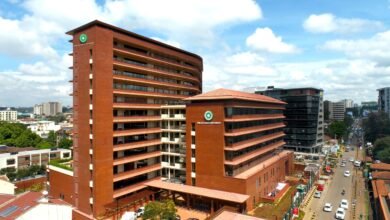
The Democratic Republic of the Congo’s Constitutional Court confirmed President Felix Tshisekedi’s re-election on January 9, which Moody’s said rubberstamps the President’s commitment to economic reforms under the International Monetary Fund (IMF).
Tshisekedi secured 73.5% of the votes, despite a low voter turnout of 43% out of the DRC’s 44 million registered voters. Since taking office in early 2019, Tshisekedi’s administration has followed the IMF program, which underwent its fifth review in December of the previous year.
The implementation of this program has resulted in a relatively stable macroeconomic environment and fostered positive relationships with international and development partners.
The DRC’s development strategy is dependent on funding from these partners, which aids in obtaining concessional financing, attracting foreign investment, and supporting policy reforms, thereby improving the government’s creditworthiness.
For example, the successful execution of the IMF program has led to an improvement in public finances, with revenue collection increasing to an average of 15% of GDP between 2021-23, compared to an average of 12% between 2015-20.
With his re-election, Tshisekedi’s administration will maintain structural reforms under the IMF program and exercise strict budgetary control to prevent significant fiscal slippage.
Moody’s predicts that the President will maintain a steady approach to managing the DRC’s debt level, and that “government debt will remain very low and affordable, with the debt burden averaging around 18% of GDP and interest payments averaging around 0.4% of GDP between 2023 and 2027.”
However, the DRC’s political landscape is still divided, which could pose a risk to the credit environment. T
he fragmented opposition, with 19 final candidates in the election, claims the vote was manipulated and has called for protests, contributing to political instability.
While civil unrest is a possibility following the Constitutional Court’s announcement, it is not expected to significantly disrupt real growth, which is heavily reliant on the mining sector, thus limiting its impact on the credit environment.
The re-emergence of the M-23 rebel group in the country’s east is also a significant concern. Despite the intense rhetoric during the election campaign, a full-scale cross-border escalation similar to the Great African war (1998-2003) is unlikely, which is a key factor in our credit assessment.
The DRC’s membership in the East African Community (EAC) since 2022 also implies that any escalation of cross-border tensions with Rwanda, another EAC member, would be detrimental to the DRC’s development prospects in the short and long term.
Any potential disruptions to trade, investment, and regional cooperation could negatively impact the country’s creditworthiness.
Despite significant infrastructure deficiencies and broader long-term constraints on credit strength, it is expected that the economy will continue to grow rapidly, driven by the commodities sector.
“We expect the economy will continue to grow quickly, driven by the commodities sector, despite large infrastructure deficiencies and broader long-term constraints on the credit strength.”





